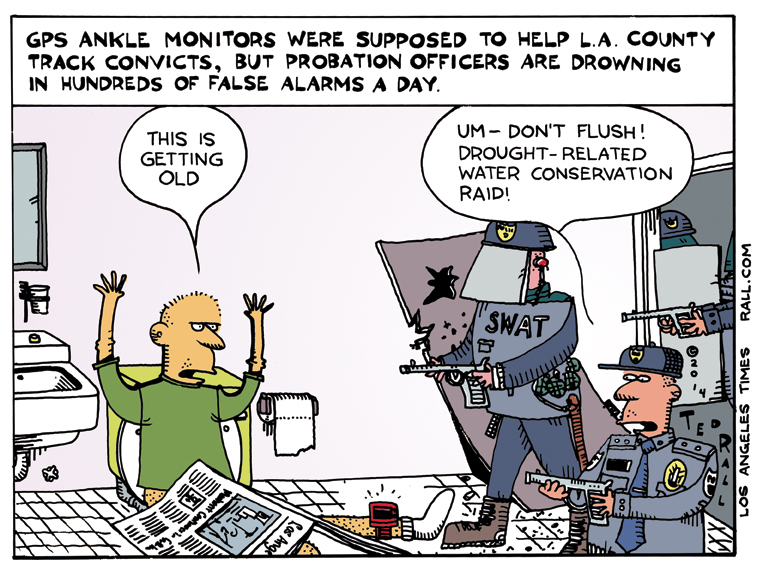“Rather than look for a single needle in the haystack, his approach was, ‘Let’s collect the whole haystack. Collect it all, tag it, store it.. . . And whatever it is you want, you go searching for it,” a U.S. intelligence official said about former NSA director Keith Alexander.
The problem with knowing everything is that you can’t make sense of it all. What’s important? What isn’t? “What they are doing is making themselves dysfunctional by taking all this data,” says a key NSA programmer.
“When your working process every morning starts with poking around a haystack of seven billion innocent lives, you’re going to miss things,” adds NSA leaker Edward Snowden. “We’re blinding people with data we don’t need.”
The same thing is happening to Los Angeles’ probation department. Ankle monitors attached to the bodies of criminals on probation are setting off so many alerts that besieged deputies are losing track of their charges.
The Times’ Paige St. John reports:
The nation’s largest probation department strapped GPS ankle monitors on the highest-risk…convicts, expecting the satellite receivers to keep tabs on where they spent their days and nights, and therefore keep the public safe.
Instead, agents are drowning in a flood of meaningless data, masking alarms that could signal real danger.
County probation officers are inundated with alerts, and at times received as many as 1,000 a day. Most of the warnings mean little: a blocked signal or low battery.
The messages are routinely ignored and at times have been deleted because there were so many, officers say.
Dang.
As the satellite cable ad goes, mistakes are made — but the downside is far more serious than getting body-slammed by a lowland gorilla. “In Colorado last year,” St. John writes, “officers dismissed days of tampering and dead battery alerts from a parolee’s GPS monitor. The man had slipped out of the device strapped to his ankle and killed a pizza delivery man and the state’s corrections chief, authorities said.”
Alerts, legit and false, wind up in a probation officer’s email inbox. Some deputies were greeted by 1000 alerts a day. “If the probation officer receives thousands of emails for every probationer in the county, he will delete them all without reading any,” a deputy said anonymously.
Which may make you wonder how much taxpayers are shelling out for a service whose net worth appears to lie between useless and counterproductive. I did.
The answer is $245,000 for six months.
It might not be as dystopian-cool, but maybe it’s time to go back to the old-fashioned analogue approach.

